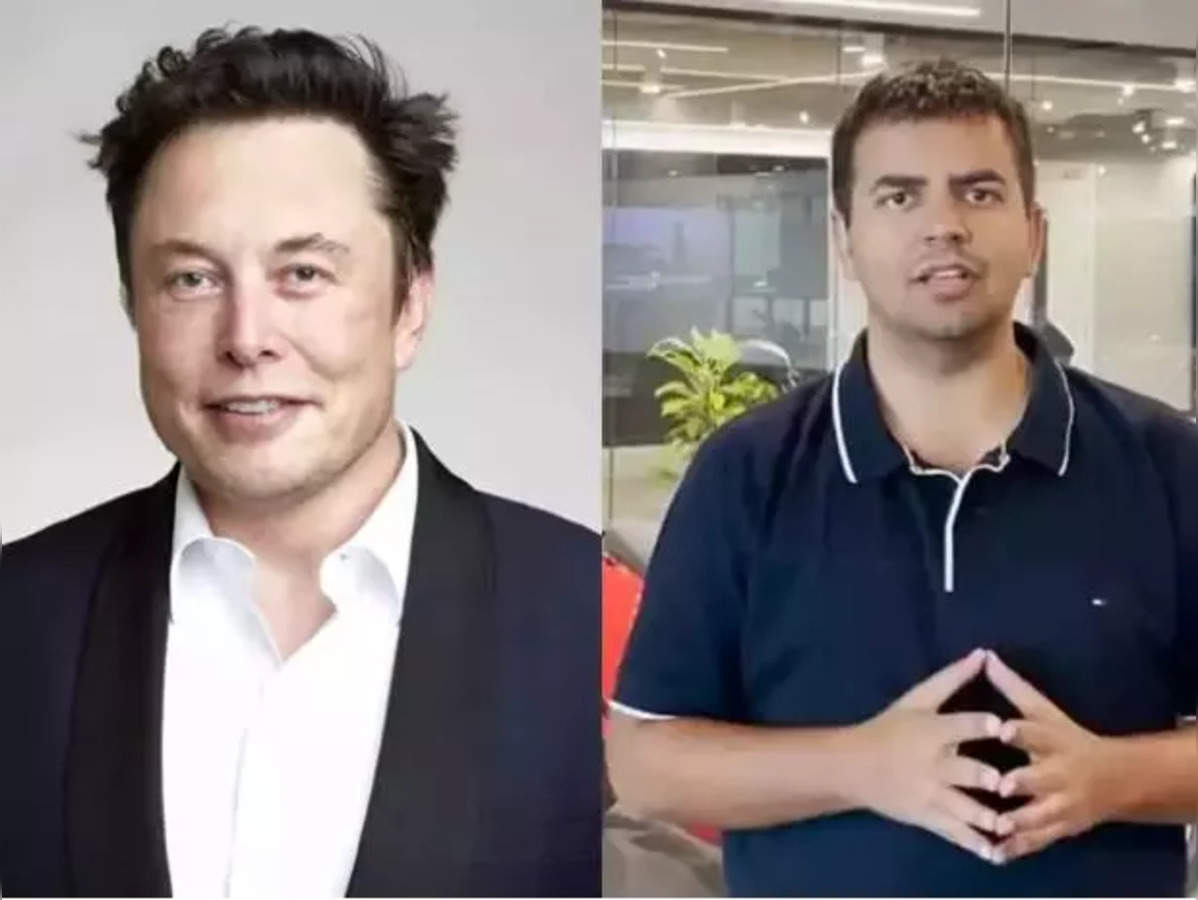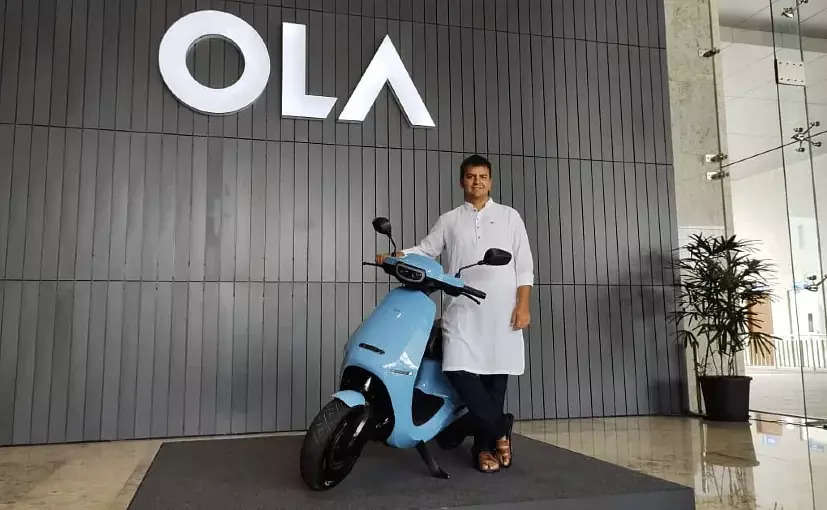Tesla is for the West, says Ola’s Bhavish as Tesla holds talks for India factory

Tesla is for the West, says Ola’s Bhavish as Tesla holds talks for India factory
Recent reports indicate that Tesla is engaging in discussions to establish its first manufacturing facility in India. In response to this news, Bhavish Aggarwal, Co-founder and CEO of Ola made a statement emphasizing the different target markets of the two companies. Aggarwal stated, “Tesla is for the West, Ola is for the rest.” Furthermore, he acknowledged the rapid growth and development of Ola Electric, saying that it has exceeded his initial expectations.
Aggarwal’s comment, “Tesla is for the West, Ola is for the rest,” highlights the contrasting market focus of the two companies. As a prominent electric vehicle manufacturer, Tesla has primarily targeted Western markets, particularly the United States and Europe. Tesla’s brand and product lineup have gained significant traction and popularity in these regions, establishing the company as a leader in the electric vehicle industry. However, Tesla’s expansion into new markets, such as India, indicates its intention to broaden its global presence and tap into emerging opportunities.
On the other hand, Bhavish Aggarwal positions Ola as catering to markets beyond the Western world. Ola, initially known for its ride-hailing services, has recently ventured into the electric mobility sector with Ola Electric. Ola Electric focuses on electric two-wheelers, electric vehicle charging infrastructure, and battery-swapping solutions. Aggarwal’s statement suggests that Ola Electric aims to address the transportation needs and sustainability challenges a broader global audience faces, including emerging economies and developing markets.
Aggarwal also acknowledged the impressive growth and maturation of Ola Electric, expressing that it has surpassed his initial expectations. This highlights the progress made by Ola Electric in a relatively short period. Ola Electric has demonstrated agility and adaptability in its operations, responding to evolving market demands and consumer preferences. The company’s ability to accelerate its growth trajectory indicates its potential to become a significant player in the electric mobility sector.
The Indian market, in particular, holds significant opportunities for electric mobility companies like Ola Electric. India has a large population, growing urbanization, and increasing concerns over pollution and environmental sustainability. These factors create a conducive environment for adopting electric vehicles and related solutions. Ola Electric’s focus on two-wheelers is particularly relevant in the Indian context, as they represent a major portion of the country’s urban commuting.

In conclusion, Bhavish Aggarwal’s statement highlighting the distinction between Tesla and Ola Electric underscores the contrasting market focuses of the two companies. While Tesla has primarily targeted Western markets, Ola Electric aims to address the transportation needs and sustainability challenges faced by a broader global audience. Ola Electric’s rapid growth and maturation signify its potential to become a significant player in the electric mobility sector, particularly in emerging economies like India. As Tesla explores opportunities in India, it reflects the country’s growing importance in the global electric vehicle market.
Recent reports indicate that Tesla, led by Elon Musk, is engaged in discussions with the Indian government regarding a potential investment proposal. The discussions suggest that Tesla is exploring opportunities to establish a significant presence in the Indian market.
India, with its large population and growing middle class, presents a promising market for electric vehicles. The Indian government has been actively promoting electric mobility as part of its sustainable development goals, offering incentives and creating supportive policies to encourage the adoption of electric vehicles. Tesla’s interest in the Indian market aligns with the country’s push towards clean and sustainable transportation solutions.
By engaging in discussions with the Indian government, Tesla aims to explore possibilities for investment and expansion in the Indian market. Establishing a manufacturing facility in India could enable Tesla to cater to the local demand for electric vehicles, while also serving as an export hub to other regions. Local production would help Tesla reduce costs, overcome import duties, and streamline its supply chain, making its electric vehicles more accessible to Indian consumers.
Furthermore, setting up a manufacturing facility in India would align with the government’s “Make in India” initiative, which seeks to boost domestic manufacturing and create employment opportunities. Tesla’s investment could contribute to the growth of India’s electric vehicle ecosystem, encouraging the development of charging infrastructure and promoting local job creation in the automotive sector.
Tesla’s brand and reputation as a pioneer in the electric vehicle industry, coupled with its innovative technologies, could have a transformative impact on the Indian market. Tesla’s vehicles, such as the Model 3 and upcoming models, are known for their range, performance, and cutting-edge features. Their entry into the Indian market could help elevate the perception of electric vehicles and accelerate their adoption among Indian consumers.
However, it is important to note that discussions between Tesla and the Indian government are still at a preliminary stage. Several factors, including regulatory approvals, infrastructure development, and market dynamics, need to be considered before any concrete plans are implemented. Additionally, potential challenges such as high import duties and the availability of charging infrastructure would need to be addressed for Tesla’s successful entry into the Indian market.
Nevertheless, the discussions between Tesla and the Indian government highlight the increasing significance of India in the global electric vehicle landscape. Tesla’s potential investment in India underscores the country’s growing importance as a key market for electric vehicles and sustainable transportation solutions. If the discussions progress positively, Tesla’s entry into India could benefit the company and contribute to India’s green mobility goals and economic development.

In conclusion, Tesla’s discussions with the Indian government regarding a potential investment proposal signify the company’s interest in establishing a strong presence in the Indian market. India’s large population, supportive policies, and growing focus on sustainable transportation make it an attractive market for Tesla’s electric vehicles. If the discussions materialize into concrete plans, Tesla’s investment in India could drive the growth of the electric vehicle ecosystem, promote local manufacturing, and contribute to India’s sustainable development goals.





